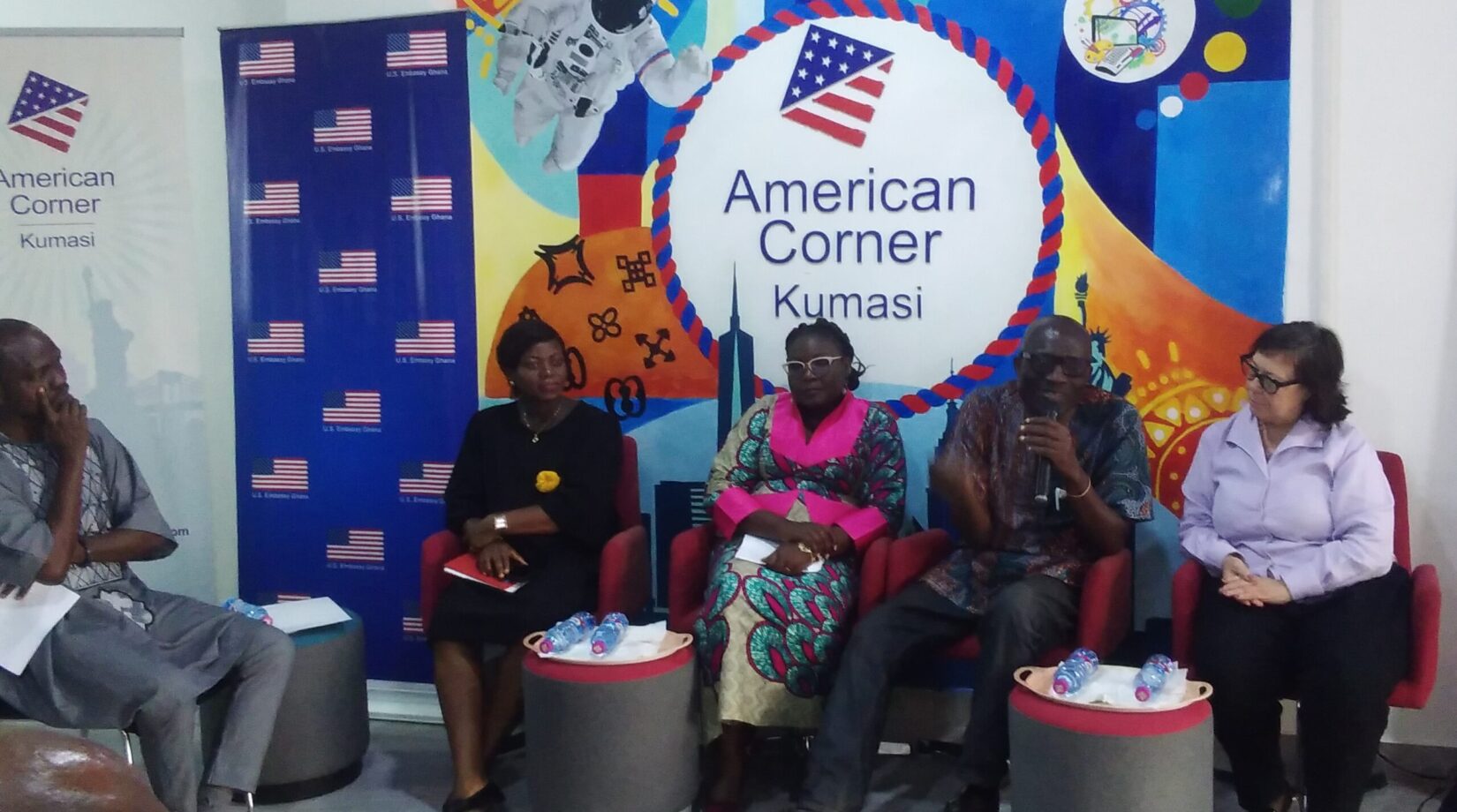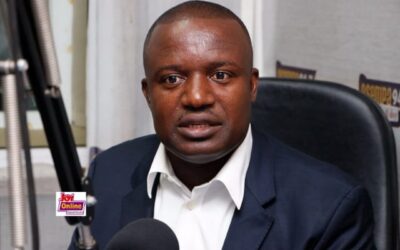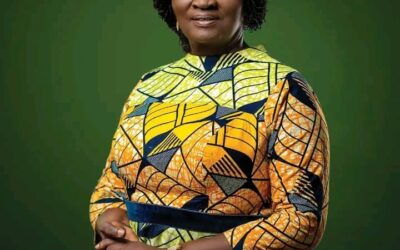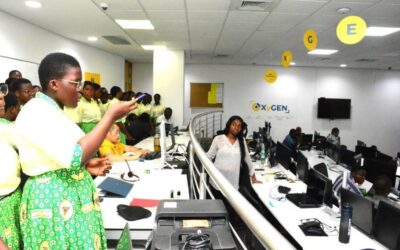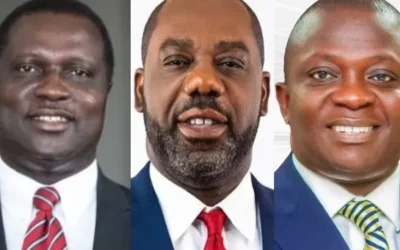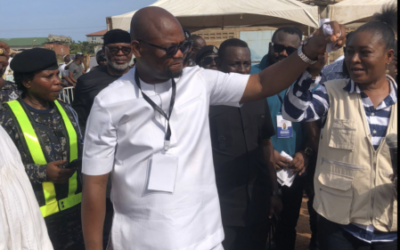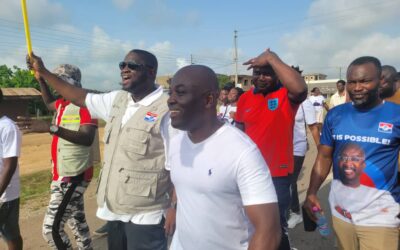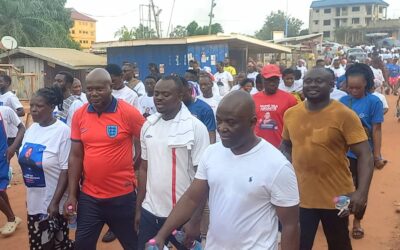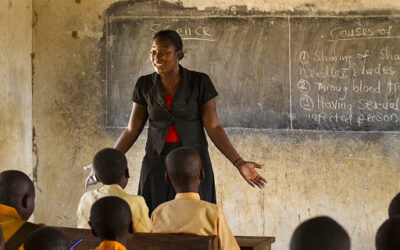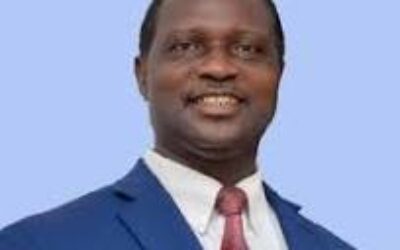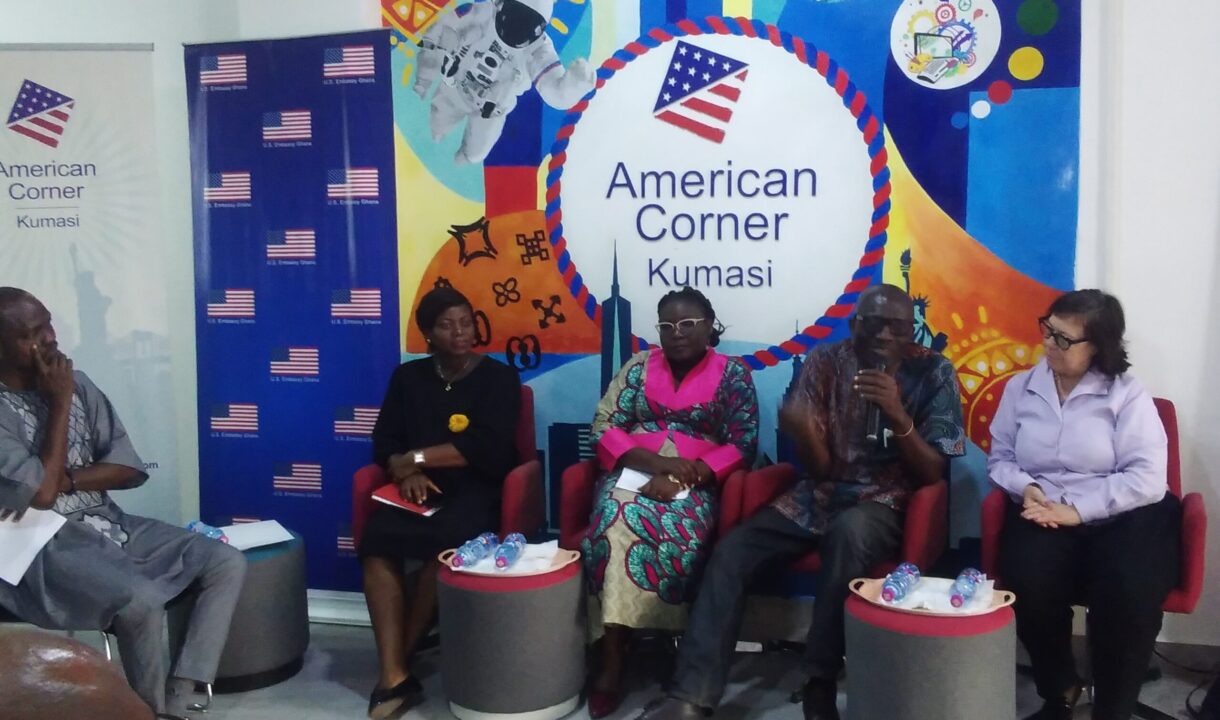By: Isaac Amoah/isaacamoah73@yahoo.com
The US Embassy, in collaboration with Dubawa (a fact-checking organisation) and UniMac, has organised a workshop on disinformation and misinformation for media practitioners in the Ashanti Region, and it is expected to be replicated in the Greater Accra Region.
The training workshop, which was held on Tuesday, 12th March 2024, at American Corner at Top Martins, Asokwa, in Kumasi, forms part of the efforts of the US Embassy and its partners to ensure violence-free 2024 elections in Ghana.

The workshop was under the theme: ”Navigating the Modern Information Landscape: The Crucial Role of Effective Communication in the Media and Information Ecosystem for Combating Information Disorder”.
The panel members shared their thoughts and answered questions on the following topics: Unravelling the Threads of Information Disorder; Inspiring Team Efforts in Countering Information Disorder in Ghana, and Unravelling the Threads of Information Disorder.

The panel members
The key panel members included Sarah J Wachter, US-based Communication Expert; Dr. Winnifred Nafisa Mahama, acting Director, Information Services Department (Ministry of Information); Mrs. Diana Bempong-Marfo, the Principal Civic Education Officer and Head of Programmes, National Commission on Civic Education (NCCE), and Kingsley E. Hope, the Ashanti Regional Chairman of the Ghana Journalists Association (GJA), who doubles as the Ashanti Regional Editor for the Ghanaian Times newspaper.

US Embassy Press Attache’, Kevin J. Brosnahan
In his welcome remarks, Kingsley E. Hope entreated media practitioners to always take their time to cross-check and verify any piece of information they receive before publishing it.
“I wish to urge my colleague journalists to always be circumspect in their reportage, especially in this election year,” he stressed.
He advised journalists to always be guided by the GJA code of ethics in all their endeavours in order not to spread misinformation and disinformation.
He took the opportunity to commend the US Embassy for its commitment to ensuring sanity in the media space and its continuous support for capacity building-related projects for Ghanaian journalists.
The US-based Communication Expert, Sarah J Wachter, urged journalists in Ghana to change their ways and work together to cross-check facts.
She encouraged media houses and journalists to use necessary tools to enable them to cross-check facts of information they receive before allowing themselves to be used to promote misinformation and disinformation

US-based Communication Expert, Sarah Wachter,
On his part, A. Kwabena Brako-Powers ESQ made a presentation on “Navigating Information Disorder: Changing Narratives in Ghana in 2024 & Beyond”.
According to him, there are four elements involved in information disorder: originator(s), content, audience and medium.
He noted that information disorder has negative impacts on governance, elections, human rights, general health and well-being of citizens, and humanitarian response during emergencies.
Lawyer Brako-Powers indicated that truths and facts are the tools that are used to disarm disinformation weapons. He said in order to tackle information disorder ahead of Ghana’s 2024 Polls, the media must stick to the facts, prioritise research and build alliance/coalition with fact-checking organisations.
He emphasised that the media should also be accountability-focused, build their capacity and follow verified social media handles of key figures. “Let’s join hands to disarm promoters of information disorder,” he urged.
He said in working towards a healthy information ecosystem, journalists need to prioritise fact-checking. “We must remember that as leaders, organisations, families and journalists, we owe a sacred duty to our constituents, not only to inform them but also to ensure that the pieces of information they receive are accurate,” he added.
In an interview, the US Embassy Press Attache’, Kevin J. Brosnahan, stressed the commitment of his country to support Ghana to ensure peaceful elections in December.
He noted that many African countries would be holding elections this year, including Ghana, for which reason the US is committed to ensuring peaceful elections. “Therefore, a series of engagements with various stakeholders as well as the media will be held to alert them of misinformation and disinformation in order to help combat information disorder which has the potential to create confusion before, during and after the polls,” he added.
Objectives of Dubawa:
The main objectives of Dubawa are to encourage, engage, inform and liberate citizenry capable of making informed decisions to equip newsrooms with the skills to make fact-checking and truth a norm in media houses through training and fellowships.
Dubawa is supposed to conduct research and build technological tools that adequately identity, analyse and counter information disorder.
Also, it is supposed to partner newsrooms and data-driven agencies to obtain and digitalise factual information on politics, economy/statistics and health so that Dubawa becomes the hub for verified information.

